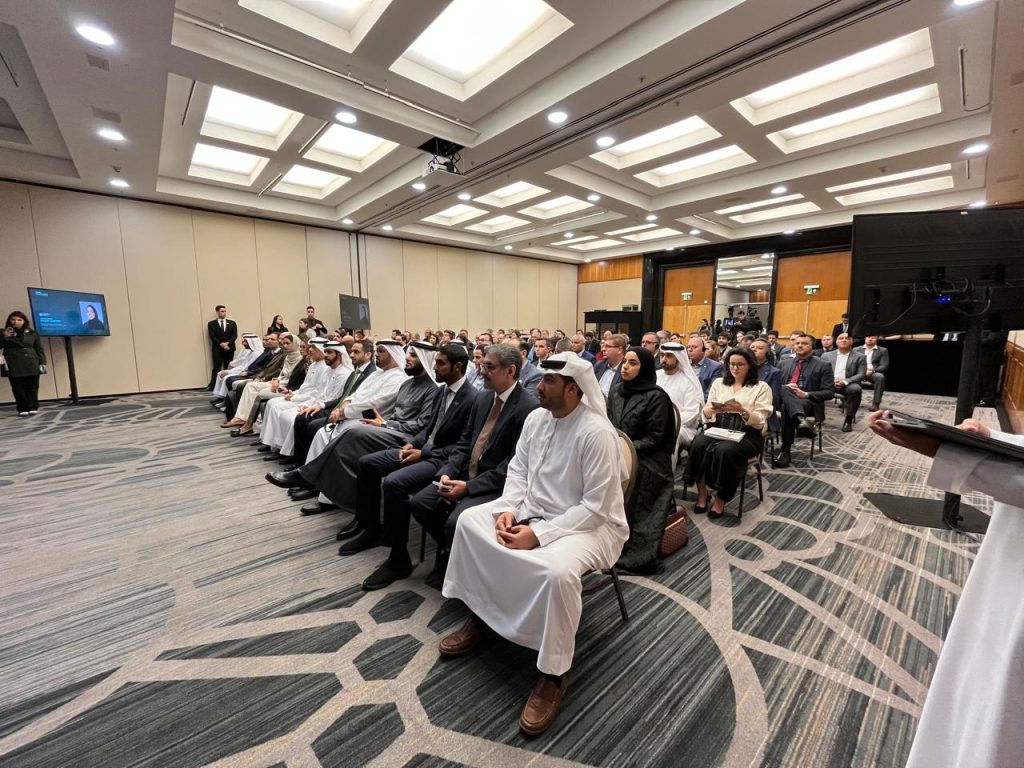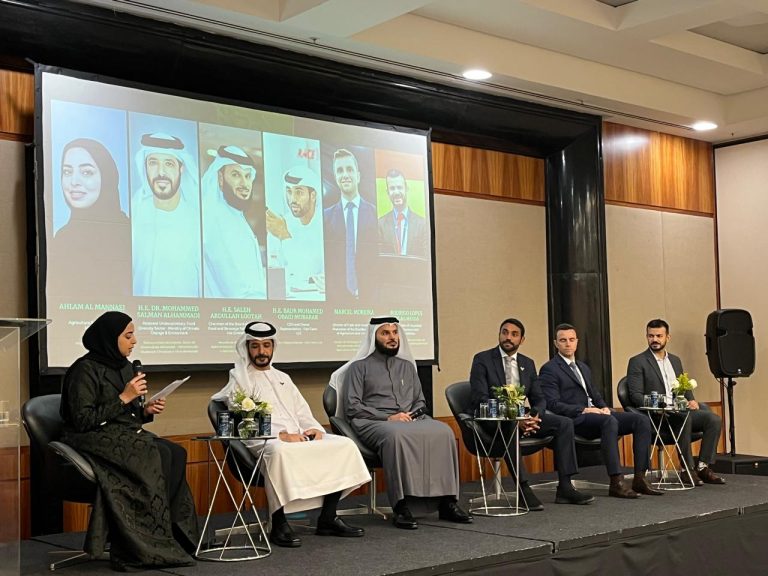São Paulo – Partnerships that enhance research and development, boost productivity, and attract investment are key to meeting global food demand, experts said on Tuesday (17) at the AgriFuture Forum. The event, held in São Paulo by the Embassy of the United Arab Emirates in Brazil, discussed the sector’s challenges in the coming years and how to address them without harming the environment.
Saleh Abdullah Lootah, Chairman of the Board of Folders, a UAE-based food and beverage group, said that despite being a major food producer, Brazil has not yet reached its full production potential to ensure food security for its trading partners. “Brazil and the UAE can work together to overcome production challenges. The UAE imports food, needs partners, and Brazil can be a great partner,” Lootah said during the panel discussion on “Sustainable Agriculture and Food Security.”

During the same debate, Mohamed Salman Alhammadi, Assistant Undersecretary for Food Diversity at the UAE Ministry of Climate Change and Environment, said that the UAE currently imports 80% of the food it consumes and aims to reduce this to 50% of its consumption by 2051 through increased production within its territory. To overcome the climate challenges facing the country, he said, the UAE has invested in technology, such as vertical farms, which have productivity up to one hundred times greater than traditional farming.
Brazilian agriculture ministry representatives on the panel, Marcel Moreira, Director of Trade Promotion and Investment, and Rodrigo Lopes de Almeida, Coordinator of Degraded Area Recovery and Reforestation, noted that Brazil has strict environmental legislation but still has space and opportunities to expand its arable land without deforesting vegetation areas.
They said that the Brazilian territory has about 250 million acres of degraded pastures, of which 100 million acres, if recovered, could achieve high productivity levels. This is a federal government program involving the agriculture ministry and others. “It is possible to double Brazil’s agricultural production without deforestation by using these areas. We need partners, though,” said Moreira, noting that the country’s Ministry of Finance is expected to allocate BRL 1 billion (USD 180,000) this year for pasture recovery. Lopes mentioned that the agriculture ministry is mapping all the areas to seek investments thereafter. “Brazil can be a provider of food security, but with partnerships, we can become an even more robust producer,” he said.
Work depends on Brazil and UAE‘s academy, governments, and businesses
The second panel of the meeting, titled “The Importance of R&D in Sustaining Agriculture and Food Systems,” was dedicated to evaluating how businesses, governments and the academy can work together to find solutions to the challenges facing agriculture and the environment.
Acting Dean of the Faculty of Agriculture and Veterinary Medicine at the United Arab Emirates University (UAEU), Mohammed Abdul Mohsen Al-Yafi, said many transformations in agriculture are to be expected over the next 50 years and that solutions that are useful today, such as the use of genetically modified foods, may not be sufficient in the near future.
In this panel, participants also mentioned that technology, new varieties of fruits and vegetables will be crucial to ensure food production in the future. They noted that current soybean varieties may not survive climate changes.
Acting Executive Director of Development and Innovation at the Abu Dhabi Agriculture and Food Safety Authority, Aref Abdul Wahid Clinter, said that it is necessary to share the existing knowledge, but a current issue in the UAE is patent ownership. Both researchers and governments, as well as companies, advocate for the ownership of technologies and solutions to field challenges.
The head of Brazil’s agricultural research agency Embrapa Environment, Paula Packer, also participated in the meeting. She highlighted challenges such as sustainability in agriculture, bioeconomy—which encompasses the sustainable production of energy, food, materials, and chemicals—and pasture recovery.
Brazilian and Emirati meat and fruit companies also showcased their products and processes at the meeting. After the forum, a B2B meeting was held between Brazilian and Arab companies. The event also featured Julio Ramos, Deputy Secretary for Commerce and International Relations at Brazil’s agriculture ministry; Rubens Hannun, a member of the Advisory Council and former president of the Arab-Brazilian Chamber of Commerce (ABCC); Fernanda Baltazar and Estevão Carvalho, Directors of Institutional Relations and New Business at the ABCC, respectively; Mohamed Zoghbi, President of the Fambras Halal certifier; and João Paulo Paixão, Chief Representative in Brazil of the Dubai Chambers.
Read more:
Mercosur-UAE agreement set to conclude in November
Translated by Guilherme Miranda




